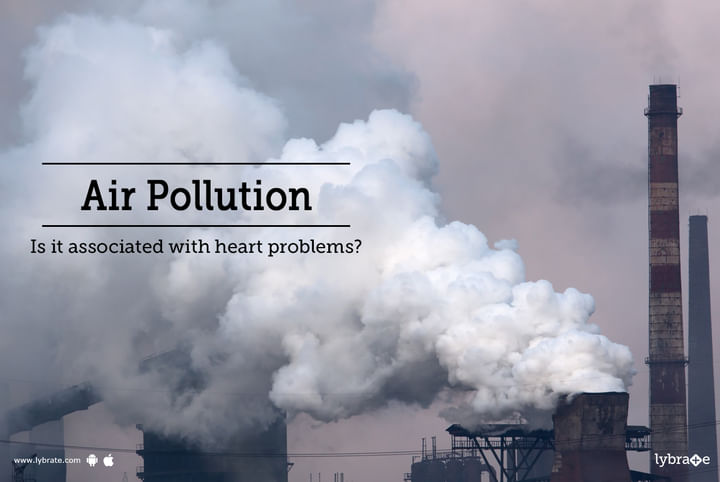Air Pollution - Is it associated with heart problems?
Cardiovascular diseases, particularly coronary artery disease, are one of the leading causes of death worldwide. Approximately 17 million people die of heart diseases every year across the globe. Over one-third of these deaths occur in middle-aged adults. Prevention of these killer diseases focuses on controlling cholesterol levels and high blood pressure, abstaining from smoking, making healthy life choices with respect to exercise and diet. However, growing evidence suggests that air pollution is a major risk factor for heart problems. Air pollutants contribute to serious damage to the cardiovascular system, which may turn out to be fatal.
Unfortunately, air pollution is something you cannot simply control through lifestyle changes. Minimizing the exposure to air pollutants remains an important aspect of enhancing heart health for the world’s population.
How does air pollution lead to heart problems?
Hazardous air pollutants, like carbon monoxide, sulphur dioxide, nitrogen oxide, ozone, and Particulate Matter (PM10 & PM2.5) contribute to cardiovascular disorders, such as blocked arteries leading to heart attacks, or damaged heart tissues due to oxygen deprivation causing permanent damage to the heart.
The procedure through which air pollution leads to heart problems is thought to be the same as those responsible for respiratory problems, like oxidative stress and pulmonary inflammation.
-
A study showed that long-term exposure to nitrogen oxides and particulate matter at levels close to the NAAQS (National Ambient Air Quality Standards) may cause your blood vessels to age prematurely and allow calcium to accumulate in the coronary arteries. Due to the calcium build-up, the flow of blood to the heart and blood vessels may be restricted – this, in turn, increases the risk of getting a stroke or heart attack. Death rates were reportedly four times higher in cities with a high concentration of nitrogen oxide, as compared to those with a low concentration of the air pollutant.
-
Short-term, acute effects of air pollution are more likely to strike elderly people, who are already coping with heart disease. For example – a person with atherosclerosis, a condition that results from the gathering of fatty deposits on the inner lining of the arterial walls, is likely to experience immediate effects when air pollutants cause the accumulated plaque to rupture in the blood vessels, thus triggering a heart attack.
-
It is not only a short-term increase, which affects the heart. Deaths from heart problems are on the rise due to chronic or long-term exposure to air pollutants despite taking into account the other risk factors, such as smoking. Researchers are concerned particularly about pollution particles related to fuel combustion, which are smaller than 2.5microns. These particles are so tiny that they are not screened easily and enter the body more readily. These start irritating your lungs and the blood vessels surrounding the heart. Evidence indicates that the pollutants, over time, increase or aggravate the process of damage within the arteries.
How to protect yourself from air pollution effects and prevent heart problems
A person with an existing circulatory or heart condition should check with the healthcare provider and look for ways to minimize exposure to air pollutants to prevent the condition from worsening.
It is advisable that you avoid spending hours in heavy traffic or places – say, factory areas – where the air pollution levels are high. Choose an alternate route or wear masks to cover your nose and mouth. If possible, use segregated bicycle lanes instead of the main roads.


+1.svg)
